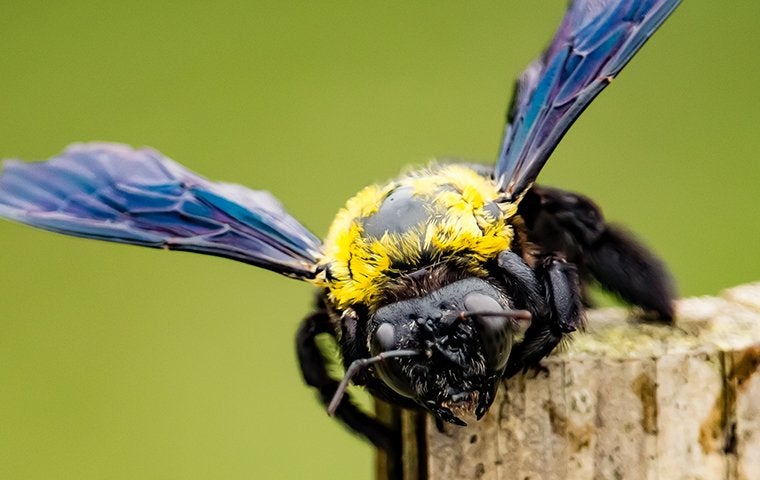Honey bees are an essential part of our ecosystem. We usually don’t consider them pests, but a certain hybrid species has become somewhat infamous for its heightened aggression. Africanized honey bees are difficult to distinguish from their more benign relatives, which only elevates the dangers they pose. These stinging insects are known to swarm and chase their victims for over a quarter-mile, earning them the foreboding nickname ‘killer bees.’
If you’re worried about the possibility of an infestation or want to learn more about these surprisingly dangerous creatures, you’ve come to the right place. Here, we’ll outline everything you need to know about the Africanized honey bee, as well as some resources for bee pest control near you.
What Attracts Africanized Honey Bees To You?
One of the first things to consider when controlling Africanized honey bees is what precisely these foraging social insects are attracted to in your yard. Easy food and shelter attract these aggressive pests, like other bees. Any flowers, dense foliage, enclosed spaces, spilled drinks, or dropped food could attract them. They build small colonies and can end up moving into some unexpected and highly inconvenient locations, including underground, indicated by tiny holes in the dirt where they burrow.
What Can You Do To Protect Bees?
Although it’s advisable to remove Africanized honey bees from your property as soon as possible due to the dangers they pose, it can be hazardous to attempt to do so on your own. Not to mention how vital pollinators play for the environment – it’s often desirable to preserve the colony despite the need to remove it from your property. Thankfully, it’s possible. It ultimately boils down to prevention. Here are a few tips on how to control honey bees on your property without damaging the environment:
- Trim foliage regularly
- Clean spills and store leftovers promptly
- Practice proper garbage disposal
- Seal cracks, crevices, and other enclosed areas
- Partner with a professional
Due to how similar Africanized honey bees look to regular honey bees, it’s advisable to seek professional pest control guidance if you suspect a problem.
How To Treat A Bee Sting
Increased aggression is a character trait of the Africanized honey bee. Although an individual sting is no more venomous than a typical honey bee, it’s their numbers and persistence that make the Africanized honey bees much more dangerous. However, their stingers operate similarly despite this difference, so no matter what kind of bee you’re dealing with, you can know how to treat a bee sting with this guide.
Bees have barbed stingers that detach when used, often embedding themselves in your skin and continuing to release venom. To remove the stinger, swipe the edge of a flat object in the same direction against it until it dislodges, then wash the welt with soap and water. However, it’s best to avoid being stung in the first place, especially by such an aggressive swarming insect as the Africanized honey bee.
Gentle Pest Control For Africanized Honey Bee Removal In Jacksonville
At this point, you’re probably wondering how to control bees in Jacksonville. They can be challenging to prevent and even more difficult to discern, whether it’s regular honey bees or dangerous Africanized honey bees on your property.
If you’re worried about the possibility of an infestation, don’t hesitate to reach out to Trad’s Pest Control for professional guidance. Our certified technicians can tell you exactly what you’re up against and remove the colony of stinging insects in a safe, fast, and effective manner. Call now to secure your home without endangering these valuable pollinators.

